Manufacturing Mastermind Series
This series profiles some of NLR's outstanding researchers in advanced manufacturing.

Browse the profiles below, and the Why the World Needs Manufacturing Masterminds summary article, to get an inside look into the lives of advanced manufacturing researchers, learn how they have made an impact at NLR, and get inspired by the exciting projects they are involved in.
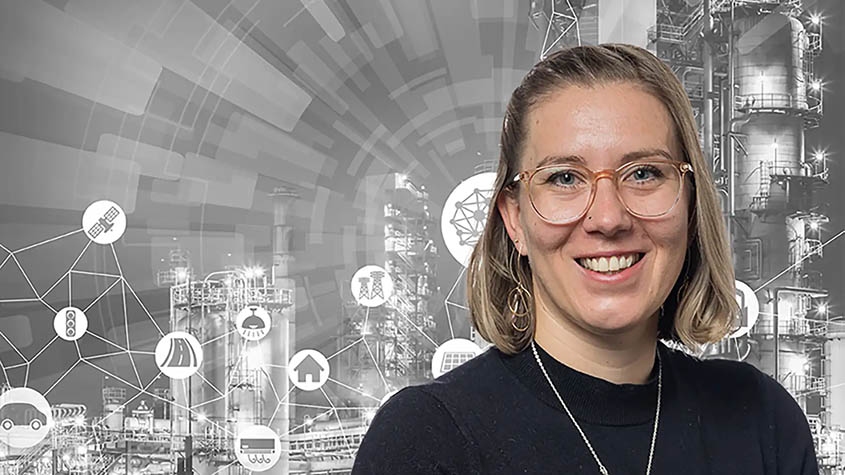
Q&A With Taylor Uekert: The Gymnast-Turned-Nanoengineer Who Harnesses Molecular Machines To Remake Plastics, Chemicals, and More
Taylor Uekert is a senior researcher who studies nanoengineering. She helps fix the world by improving imperfect processes, such as plastic recycling and chemicals production.
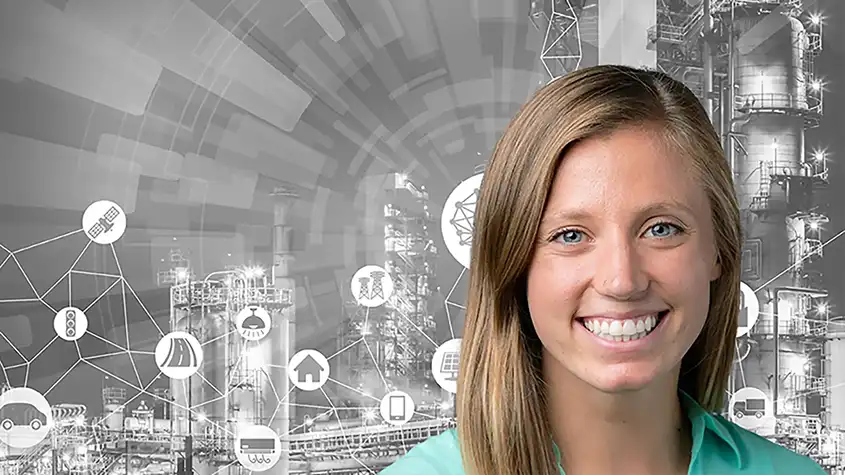
Q&A With Alli Werner: Engineer Enlists Tiniest Engineers (Microbes) To Recycle Plastics, Mine for Metals, and More
Alli Werner is a biological science researcher who engineers microscopic machines to convert plastic waste into sellable goods, mine for metals in electronic waste, and break down lignin so it can be repurposed to make textiles and fuels.
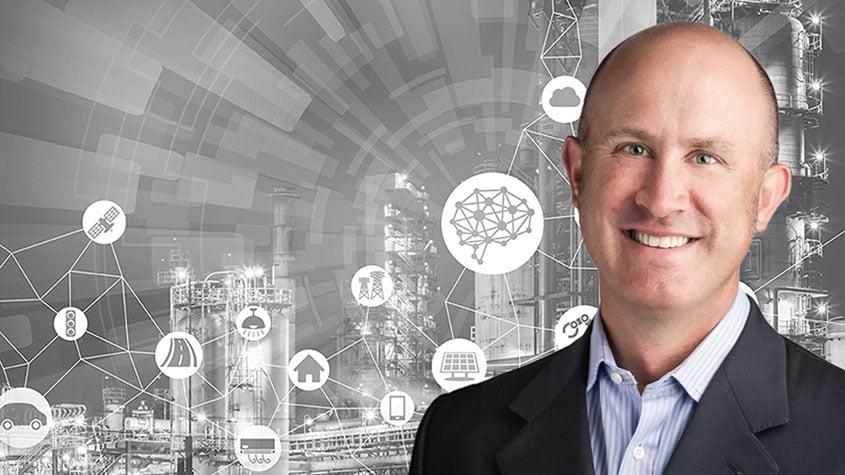
Q&A With Matt Ringer: The Shy Kid Who Left Law To Forge Chemical (and Human) Bonds
As the laboratory program manager for NLR's advanced manufacturing program, Matt Ringer helps build teams, connecting experts, organizations, and resources.
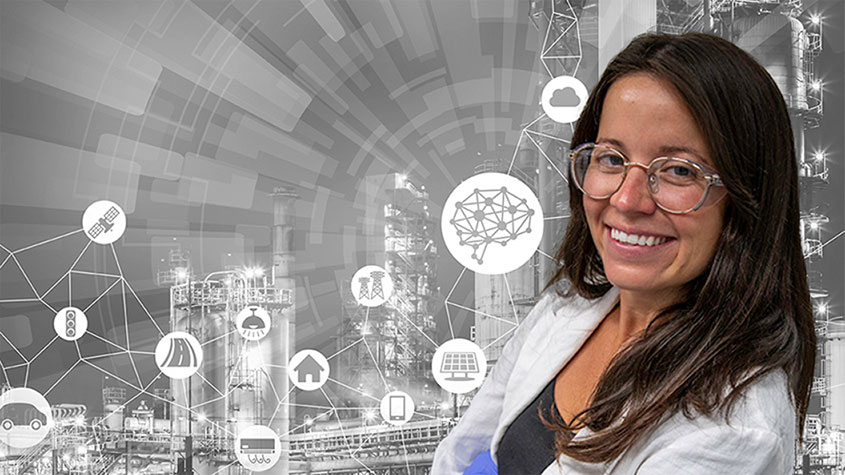
Q&A With Kat Knauer: This Polymer Scientist Is Exploring How To Break Down Plastics To Save the Planet
Katrina Knauer is a polymer scientist at NLR and the chief technology officer of the Bio-Optimized Technologies to keep Thermoplastics out of Landfills and the Environment (BOTTLE™) consortium. She is an expert in waste and looking to solve the plastics crisis.
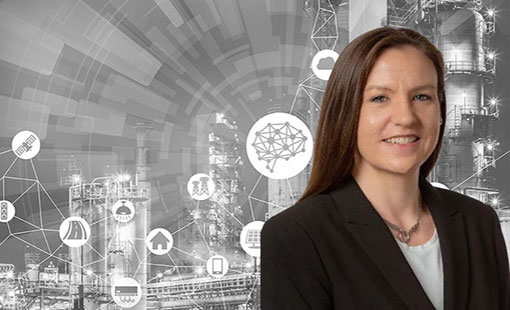
Q&A With Ana Aday: Why a Plucky Engineer Chose Cement Over Rodeo (But Credits Horses for Her Ability To Face a Crowd)
Ana Aday is a materials science researcher at the National Laboratory of the Rockies. In this Manufacturing Masterminds Q&A, Aday shares why Bill Nye inspired her to become a scientist, how 3D manufacturing and artificial intelligence could help the cement and concrete industries, and why handling a crowd of 1,000 people is the same as handling a 1,000-pound animal.
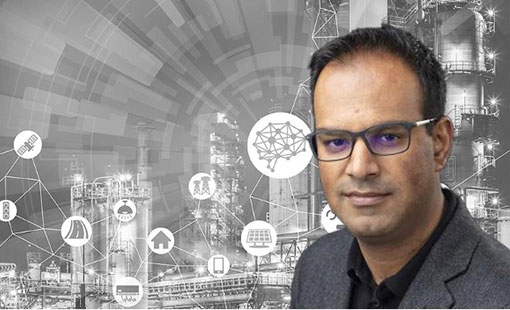
Q&A With Jibo Sanyal: The Nature Lover Who Sees Our Planet From a Bird’s-Eye View
Jibo Sanyal is the group manager of NLR's Hybrid Energy Systems team. In this Manufacturing Masterminds Q&A, Jibo shares why a prosthesis changed how he sees himself and how energy efficiencies could help manufacturing facilities do far more than just reduce their emissions.
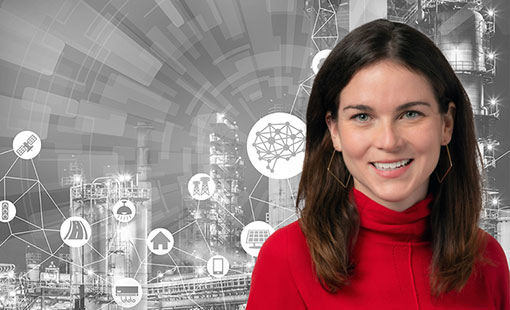
Q&A With Kerry Rippy: Why You Should Be Optimistic About Industrial Carbon Emissions
Kerry Rippy is a chemistry researcher focusing on the application of chemical principles to solve challenges in renewable energy technology development and industrial efficiency. In this Manufacturing Masterminds Q&A, Kerry Rippy explains why she chose chemistry over literature, why carbon capture can’t be our only industrial efficiency solution, and how the mining industry could reduce emissions with the rocks it already digs up.
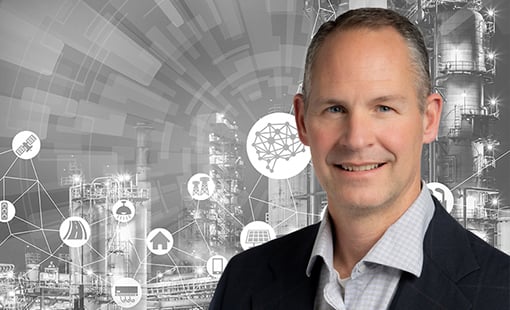
Q&A With Scott Struck: From Frogs to Jerry Cans to Urban Drool
Scott Struck, a senior integrated water systems research scientist at NLR, studies cyclical water supplies that keep humans and ecosystems happy and healthy. In this Manufacturing Masterminds Q&A, Struck explains how various water sources could help bolster dwindling water supplies across the country and around the world.
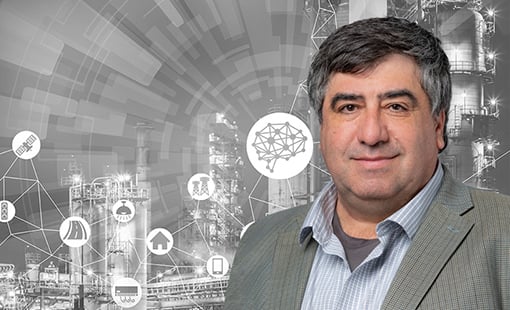
Q&A With Rob Hovsapian: The Engineer Who Solves Crises Before They Happen
Rob Hovsapian, a mechanical engineer at NLR, is building a massive machine—one that could help solve future crises. In this Manufacturing Masterminds Q&A, Hovsapian shares why he stopped building fighter jets and army radios; what his kids think he builds now; and what kind of rare, national events the SuperLab might help solve.
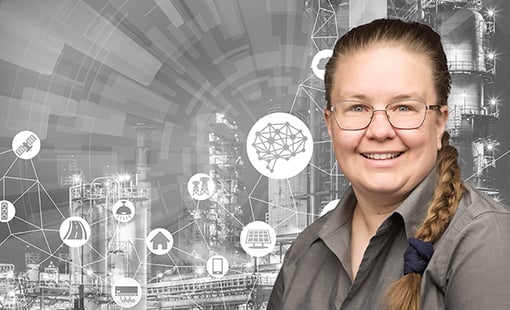
Q&A With Samantha Reese: The Fix-It Engineer Who Digs Up Data To Fix the Planet
Fixing things—such as snowmobiles but also manufacturing processes and global supply chains—happens to be Sam Reese’s specialty. As a senior engineer and analyst at NLR, she puts energy in context, analyzing, for example, how to manufacture solar panels without emitting too much carbon. In this Q&A, she shares how she ended up traveling around the world and how she’s sharing her fix-it mindset with her kids.
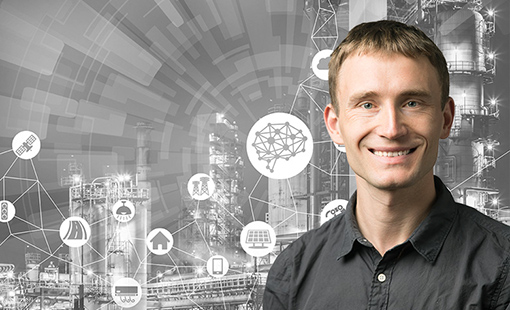
Q&A With Andriy Zakutayev: Materials Architect Builds New, Energy-Efficient Devices One Atom at a Time
Growing up in Ukraine, Andriy Zakutayev remembers looking at his family’s first computer and thinking, “How do you make electrons go where they’re supposed to go?” Now, as a materials scientist at NLR, Andriy manufactures materials to find new ways to control electrons, helping them carry electricity through new microchip semiconductors that power computers, solar panels, lightbulbs, smartphones, and other technologies. In this Q&A, he shares how the war impacts his professional life, what it’s like spray-painting atoms, and how materials have memories.
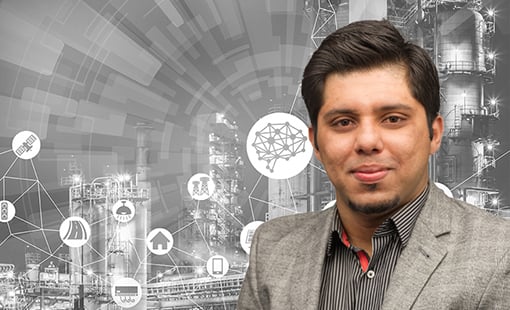
Q&A With Danish Saleem: A “Bottomless Cyber Enthusiast” Works To Secure the U.S. Power Grid Against Hackers
Danish Saleem, a senior energy systems cybersecurity researcher at NLR, wants to help prevent U.S. power outages caused by cyberattacks. For the past 6 years, he has focused on helping manufacturers build security into their devices; establishing cybersecurity certification standards for power generation, transmission, and distribution; and identifying and preventing ways hackers could disrupt distributed energy systems that, like rooftop solar panels, typically power nearby, local consumers. Read the Q&A to learn more about Saleem's work and how he found his way to this role.
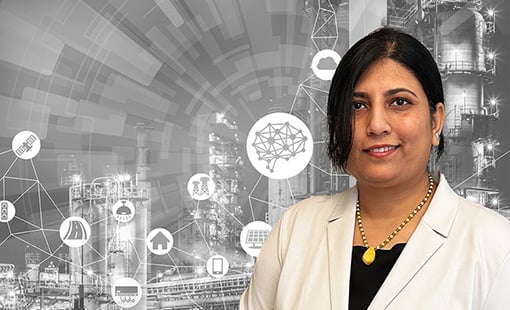
Q&A With Mou Paul: The Artist Who’s Making Better Fuel Cells, Water Treatment Systems, and Cheese
If you asked a 10-year-old Mou Paul what she wanted to be when she grew up, she would have said, “A great writer and a great scientist, too.” Today, Paul, a senior staff scientist at NLR, has published more than 40 publications, won several high-profile awards, earned more than 50 patents for her scientific inventions, and written fictional short stories (mostly in her native tongue, Bengali). Paul talks about the visual appeal of chemistry, the many ways her membranes are used, and what haunts her about the future.
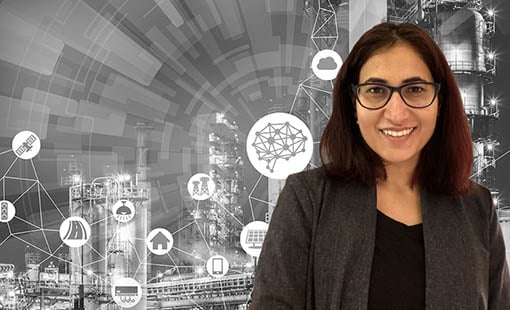
Q&A With Avantika Singh: The Cautious Optimist Who Hates Waste (Like, Really Hates Waste)
After touring landfills, composting facilities, and other waste-processing plants in her native country of India in her early career, Avantika Singh is now helping combat waste. As an expert in market analysis and advanced materials, she works with research teams to design new, cost-effective ways to manufacture and recycle plastics so they don’t keep piling up in landfills. In this interview, Singh shares her twisty path to plastics, how her mother’s green thumb inspired her commitment to adaptable living, and her ideal world and advice.

Q&A With Robynne Murray: Rebel With A Cause—And an Ice Axe
Growing up in Canada, Robynne Murray literally got her hands dirty clam digging in the Bay of Fundy. Today, if Murray’s not grappling with a crag of rock or ice as a climber, hiker, and skier, the mechanical engineer is probably getting her hands dirty in her NLR lab, grappling with molds and resins, manufacturing and evaluating new materials for wind and tidal turbines and electric vehicles. In this interview, Murray talks about her latest outdoor adventures, building plastics from sugars instead of the traditional fossil fuels, being “a bit of a rebel” in high school, and the award-winning thermoplastic resin she and her team concocted that can be used to build recyclable wind turbine blades.
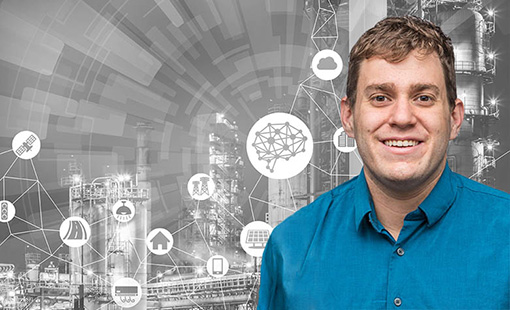
Q&A With Nicholas Rorrer: Plant-Based Plastics and Plastic Plants
Even as a child, Nicholas Rorrer ran experiments, testing soap effectivity on shirt stains. Now a senior researcher at NLR, he studies how to clean up plastics (or rather the polymers that make up plastics). So far, he and his colleagues accidentally designed a microbial enzyme that eats polymers and are inventing ways to manufacture polymers with biobased (or plant-based) materials, such as corn, and upcycle reclaimed polymers into superior plastics. Learn why he loves polymers as well as Legos, yoga, RuPaul’s drag races, and saving the world.
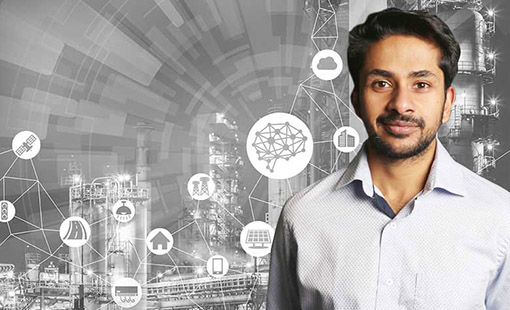
Q&A With Parthiv Kurup
Growing up in India, Parthiv Kurup saw regular blackouts that lasted days. After that, he decided to join the energy sector—and change it. Although he started in natural gas, he switched to renewables when he realized their future economic value would surpass fossil fuels. Now, as a cost and systems analyst, Kurup studies the economic viability of renewable technologies and helps streamline manufacturing processes to reduce energy consumption and costs.
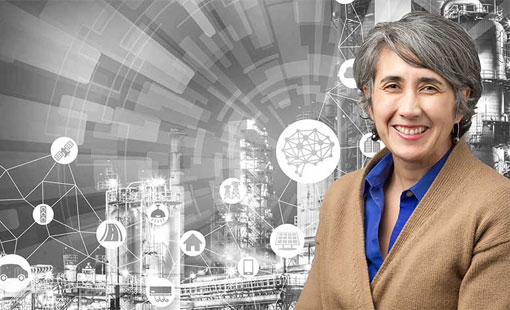
Q&A With Alberta ("Birdie") Carpenter: How To Untangle Carbon From the Vast Web of Manufacturing and Supply Chains
Birdie Carpenter was born in Guam and grew up in Saipan, Taiwan, Liberia, Sudan, Pakistan, and Somalia. After getting a degree in engineering and joining the U.S. Navy, she went back home to Saipan for a job in waste management. That's when she realized she belonged in environmental engineering. Now, she analyzes if the benefits to early-stage technologies outweigh the negative impacts to the supply chain.
Join Us
Come innovate with us. Browse open positions and see what it's like to work here.
Share
Last Updated Jan. 16, 2026
